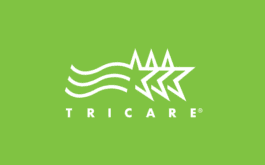What Happens if Bulimia Nervosa isn’t Treated?
We’ll say it plainly: left untreated, bulimia can become life threatening. The stress bingeing and purging puts on the body can cause damage very quickly…and some of this damage can be permanent, too.
Here are a few of the ways bulimia physically damages the body:
Dehydration
If you’ve ever had the stomach flu, you know how easy it is to become dehydrated when you vomit. But when you vomit many times, dehydration becomes a much more serious risk.
Also, dehydration causes our bodies to lose electrolytes like potassium and sodium. In turn, this can lead to heart problems…and in some cases, death.
Heart Problems
The heart problems caused by dehydration can include abnormal heart rhythms (arrhythmia), rapid or fluttering heartbeats (palpitations), and low blood pressure.
There’s another way bulimia can cause heart damage. Some use substances to induce vomiting, and over time, this can weaken the muscles of the heart, leading to permanent damage and death.
Digestive Issues
Purging can seriously disrupt the digestive system, sometimes in ways that require immediate medical attention:
- Damage to the esophagus: The esophagus is the organ that connects our throats to our stomach. Vomiting can seriously damage the esophagus, which can range from the relatively mild, like acid reflux, to situations that require emergency surgery, such as esophageal tears and rupture.
- Damage to the stomach and intestines: Purging with laxatives can cause long-term problems like irritable bowel syndrome, diarrhea, and constipation.
Oral Damage
Vomiting over long periods of time can damage the enamel on your teeth, as well as discolor them and cause gum disease. Bulimia can also cause sores in the mouth to develop. Finally, vomiting can enlarge your salivary glands, causing the face and neck to look puffy.
Other Areas
Bulimia can damage other areas of the body, including organs. Both purging and malnutrition can cause pancreatitis, or inflammation of the pancreas. Malnutrition can also damage the skin, hair, and nails, cause hormonal problems, and lead to pregnancy complications.
Get Help for Bulimia Nervosa Today at Center for Discovery
Like other eating disorders, bulimia can make you feel like you’re alone, hopeless, and misunderstood.
You’re not. With professional, specialized care, you’ll be able to manage and control your symptoms, rebuild a healthy relationship with food, and learn to truly love yourself again.
Center for Discovery has over 25 years of experience successfully treating eating disorders like bulimia. We offer personalized, evidence-based care for bulimia and other eating disorders, providing a nonjudgmental, comfortable space where you’ll be able to safely explore the roots of your problems…and treat them successfully.
You’ll also have access to our exclusive Path to Peace online eating disorder treatment program, specifically designed for people who struggle with binge eating and chronic dieting behaviors.
Bulimia can make your life seem like it’s not worth living. It is. You deserve to live your best life. Discover the you within you at CFD today. Contact us now to learn more.















